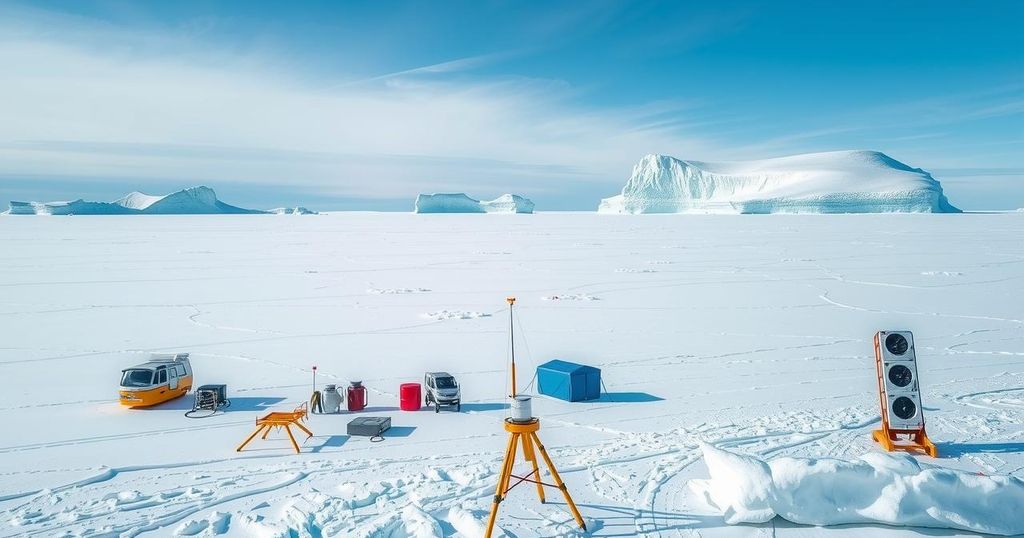Weather
AFRICA, ANTARCTIC, ANTARCTICA, BRITISH, BRITISH ANTARCTIC SURVEY, CANADA, CLIMATE, CLIMATE CHANGE, CONTINENT, DAVID WILLIAM HEDDING, DRON, GLOBAL WARMING, MONTREAL, NORTH AMERICA, RAIN, SANAE IV, SCIENCE, SOUTH AFRICA, SURVEY, WESTERN DRONNING MAUD LAND, WHITE CONTINENT
Oliver Grayson
0 Comments
Scientific Research in Antarctica: Critical Insights and Challenges
A recent incident at South Africa’s SANAE IV base in Antarctica highlights the importance of ongoing research in this extreme environment. Key focus areas include climate change and its global implications, facilitated by international collaborative efforts. Significant findings, such as the discovery of the ozone hole and analysis of ice cores, illuminate past climate conditions and inform future responses to anthropogenic changes.
In March 2025, a controversy arose at South Africa’s remote Sanae IV base in Antarctica when a researcher reported an incident of violence among team members. To understand the research conducted in such an extreme environment, The Conversation Africa consulted geomorphologist David William Hedding, who has experience working in Antarctica.
The predominant focus of Antarctic research is climate change due to the continent’s status as a sensitive indicator of global climatic shifts. Its pristine and fragile ecosystem allows scientists to study natural processes in an unaltered setting, while its unique geography facilitates studies on phenomena like space weather—disturbances to the Earth’s magnetic field resulting from solar activity—critical for understanding impacts on communication technologies and human health.
Approximately 30 countries operate research stations in Antarctica, providing a collaborative environment that enhances research capabilities. South Africa’s SANAE IV base typically hosts 10 to 12 researchers who endure harsh conditions, remaining there for about 15 months, including the extensive, cold, and dark winter months.
Among the most pivotal discoveries made at the Antarctic research stations is the identification of the ozone hole in 1985 by the British Antarctic Survey, leading to the Montreal Protocol’s adoption to curb ozone-depleting substances. Additionally, the study of ice cores has allowed scientists to reconstruct past climates, revealing atmospheric conditions over the last 1.2 million years, thus helping predict future climate responses amid human-induced climate change.
Conducting research in Antarctica poses considerable challenges due to its remoteness, extreme cold, and constant daylight during the summer months. The vast distances from established bases necessitate extensive planning and collaboration, particularly for activities such as sample collection. Scientists often maximize the brief summer season for research, which is limited by the accessibility of sea routes due to ice conditions and the ephemeral nature of 24-hour daylight.
Scientific exploration in Antarctica is crucial for its integral role in global systems, most notably in studies related to climate change. As climate change advances, the melting of Antarctic ice threatens to raise sea levels significantly, potentially disrupting oceanic currents and impacting marine ecosystems. Understanding these dynamics is essential for society to build resilience and adapt to ongoing environmental changes.
In conclusion, the research conducted in Antarctica is vital in understanding climate change and its global impacts. The discoveries made in the region, including the ozone hole and insights from ice cores, have shaped scientific knowledge and policy. The extreme conditions faced by researchers underscore the importance and challenges of their work, which ultimately enhances global resilience against climate-related threats.
Original Source: allafrica.com




Post Comment